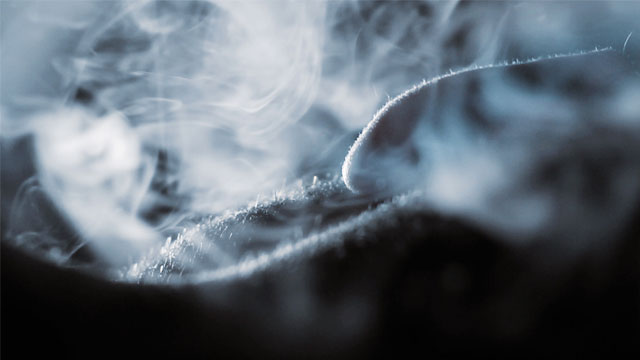A withered man, nine-decades-old and held-up in part by a wooden cane, reclines beside a stack of self-published scientific books. The walls of his home are barren, the counters scattered with copious vitamins and supplements. “When people say they don’t want to extend their lives,” he says, “they’re talking without thinking.” This is Robert Ettinger, aka “The Iceman”. Nearing the final chapter of his life, he doesn’t buy into the notion of death – at least, not in the traditional sense – and he doesn’t believe you have to, either. As founder of the Cryonics Institute, Ettinger has devoted a giant portion of his life to cryogenics, the process by which human beings are stripped of their blood, filled with antifreeze, and frozen (by way of liquid nitrogen), where they are then stored in a sustained kind of limbo until more-advanced technology can “awaken” them.
Sound like science fiction? That’s because it is…for the time being.
“I’m not talking about living forever; I’m talking about waking up tomorrow.”
Premiering at the 2013 Tribeca Film Fesitval, We Will Live Again follows Ben Best (the current CEO of the Cryonics Institute) and Andy Zawacki (the operations manager, who lives on the premises five days out of the week) as they prepare for a milestone: the Institute’s 100th patient. Inside a nondescript warehouse just outside of Detroit – a set ripped from the backlot of a major Hollywood studio – the Cryonics Institute houses giant containers (resembling the sleeping quarters from Alien), stacked with cryogenically-frozen men, women, children – and yes, even some pets. After learning about the Institute through a story published in The New Yorker, directors Josh Koury and Myles Kane decided to come along for the monumental ride. With a blend of traditional hand-held documentary-style camera work and some truly mesmerizing close-ups of liquid nitrogen passing over human flesh, Koury and Kane provide intimate (albeit, slightly macabre) access to a world only dreamed about in high-concept science fiction. Making use of down-time during the filming of their feature documentary, Journey to Planet X, Koury and Kane shot nearly thirty hours of footage during two separate trips to the Cryonics Institute, whittling it down into the twelve absorbing minutes on display here.
Brimming with both philosophical and ethical dilemmas, We Will Live Again constantly fascinates. This is Dr. Frankenstein territory, after all. Calling themselves a “hospital for the metabolically challenged”, Best believes that in a hundred years’ time, technology will be advanced enough to wake the cryogenically-frozen patients from their “sleep,” though he acknowledges that many people are outraged at the Institute’s attempt to play God: “There is a great deal of contempt for what we do…It’s like there’s some 11th commandment in the Bible that says, ‘Thou shalt not freeze.'” Ettinger, who spent his younger life as a mathematics professor, admits that, in the end, the process may only amount to a pipe dream, but that hasn’t stopped him from trying; his mother was the Institute’s first patient, and both his first and second wives can be found frozen on the premises. These are subjects that would be right at home in an Errol Morris documentary, but the filmmakers treat them with complete respect; where other documentarians would have taken the cheap shot to show how ludicrous this all sounds (perhaps hanging on the awkward pauses in-between answers to undermine the speakers), Koury and Kane keep things honest, highlighting the humanity of men who want nothing more than to “wake up tomorrow” with their loved ones.
Koury and Kane are currently working on a feature documentary about the life of famed author, Gay Talese. Detail are nix, but you can keep tabs on that project and all of their other work through their production company’s website or Facebook page.

 Ben Watts
Ben Watts